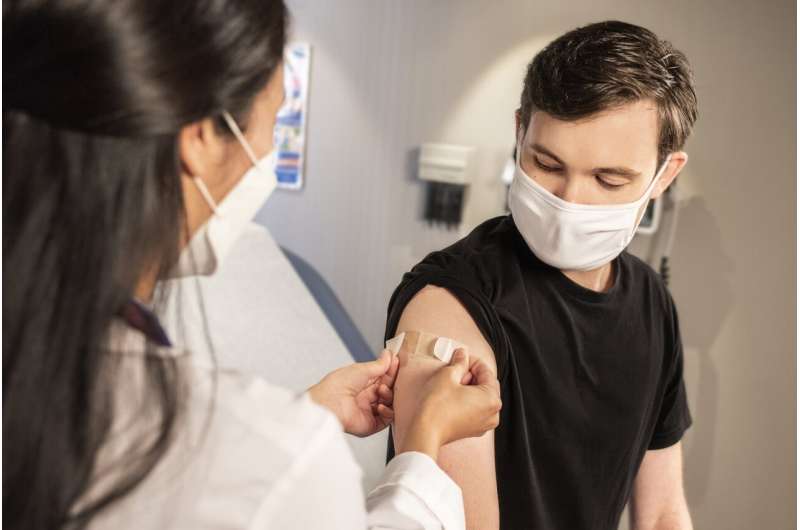Individualistic COVID-19 vaccine messages had best effect in US study

Emphasizing individual rather than community health risks from COVID-19, appeared to create more vaccine acceptance among participants in a study led by Washington State University researcher Porismita Borah.
The study, published in the Journal of Health Communication, tested messages on nearly 400 participants from across the United States in July 2020 before COVID-19 vaccines were available—and before misinformation on them was widespread. The researchers also found that "loss" framing, highlighting the potential health problems from not getting a vaccine, was slightly more effective than the positive "gain" framing that stresses the benefits.
"It's really interesting to see that individual frames were more persuasive," said Borah, an associate professor in WSU's Murrow College of Communications. "It's hard to say exactly why, but it's possible that it is because culturally the United States is more individualistic in nature. It's also possible that because this pandemic situation is unprecedented, people were more concerned about individual consequences."
The study showed that the wording of the content matters, Borah said and advised that public officials should pay attention to the content and use many different messages.
"There should not be just one type of message for promoting COVID-19 vaccines because again and again, we see that different messages resonate with different people," said Borah. "At this point in time, with the dire situation we are in, we really need people to be vaccinated, and a variety of messages to reach specific groups of people could be beneficial."
For this study, Borah tested four messages on equal sized groups of about 100 participants each, who were recruited through Amazon's crowdsourcing site Mechanical Turk. The average age of the participants was 37; 57% were male; and 66.7% were white with 47.5% identifying as politically conservative.
The participants were first asked questions about how they felt about the benefits of vaccines, and then exposed to one of four screenshots of messages made to look like real Facebook posts from the Centers of Disease Control and Prevention.
The message that had an "individual loss framing," wording that emphasized the potential personal health problems of not getting a COVID-19 vaccine, appeared to resonate the most. The findings were moderated by the participants' perceptions of vaccine benefits. In other words, if their prior notions of vaccines were already positive, the more likely they were to be positively impacted by the messages.
This study was conducted before misinformation about COVID-19 vaccines had started circulating widely, and Borah is currently investigating how vaccine messaging might have an impact in this misinformation-filled environment.
"Now that there is so much misinformation particularly about the COVID-19 vaccines, it's important to see how messaging interacts with people who hold those misperceptions—if they perceive these messages differently or if the messages resonate with them at all," she said.
More information: Porismita Borah et al, COVID-19 Vaccination Attitudes and Intention: Message Framing and the Moderating Role of Perceived Vaccine Benefits, Journal of Health Communication (2021). DOI: 10.1080/10810730.2021.1966687



















